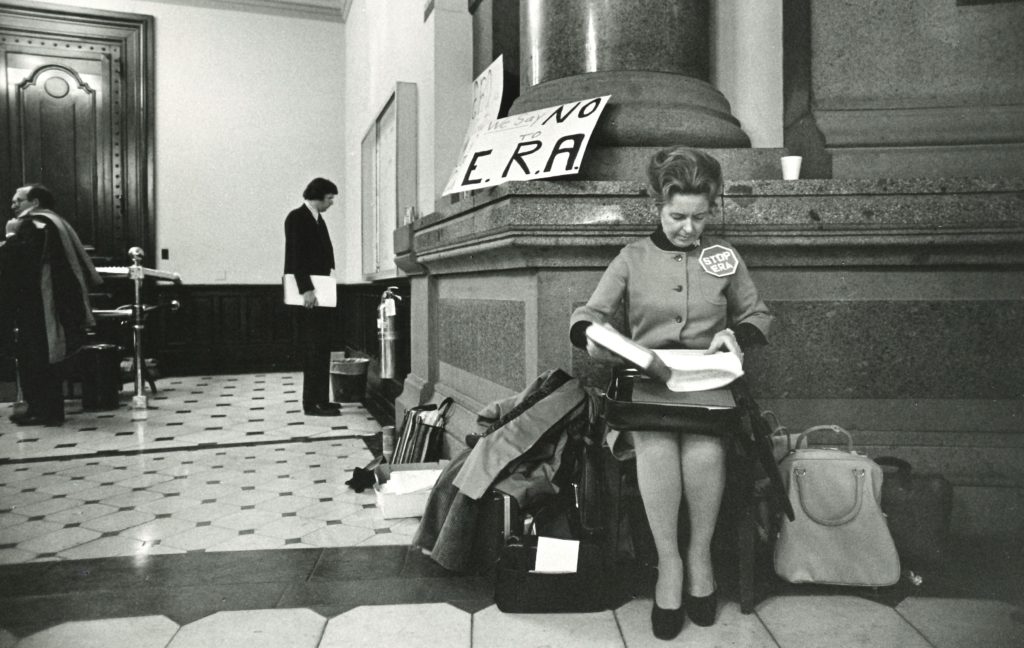Hollywood intentionally portrays Phyllis Schlafly in a world against her. Usually, this is done to bolster support for the heroine. In this case, it paints Phyllis as an opportunistic traitor of women.
Episode One continues with the male chauvinism theme as Congressman Crane’s predatory manners toward Phyllis ensues. She desires assistance with another campaign, but Hollywood depicts Crane as a smiling man with an agenda.
In Hollywood’s depiction of the meeting with Goldwater, Phyllis is just a tag-a-long woman with good penmanship. In reality, Phyllis called this meeting with Goldwater. Who’s the damsel in distress now, Hollywood?
At first, Phyllis is disinterested in the Equal Rights Amendment. Alice, a fake character, introduces her to the proposal. Phyllis wrote about the Equal Rights Amendment on her own accord. Introducing a fictional character played by bi-sexual actress, Sarah Paulson, gives Hollywood a lead role to manuever with.
Hollywood wants the public to believe that Phyllis attacked the Equal Rights Amendment because of her frustration with patriarchy. After her meeting with Goldwater and conversations with Fred, Phyllis is left with an angry smile.
She delivers a speech at the Daughters of the American Revolution Mother-Daughter luncheon mocking women who are not married with cold calculated blows. Phyllis never directed personal insults. In a 2005 interview with the Saint Louis Post-Dispatch, Karen DeCrow stated, “I never found Phyllis to be unpleasant, unfriendly, or uncooperative.”
Watching the invented speech leads one to believe she was an angry, frustrated woman whose marriage fit Betty Friedan’s belief that marriage “is a comfortable concentration camp.” Inventing a false version of Phyllis’s marriage and home life is ruthless. Photos from the Phyllis Schlafly Archives portray the happy home Fred and Phyllis had together for forty-four years.
Hollywood wants the public to view Phyllis as a traitor to her sex. At the end of the episode, Betty Friedan states, “There are too few of us [women] and we are not each other’s enemies.” Immediately, she sees the Phyllis Schlafly Report and says, “It’s not like I’m ever gonna say that f*****g woman’s name again!” The episode ends with Gloria Steinem pouring alcohol on Phyllis’s photo smearing the ink. Within seconds, “too few [women]” turns into a slanderous reproof. Who’s the real traitor, Hollywood?

